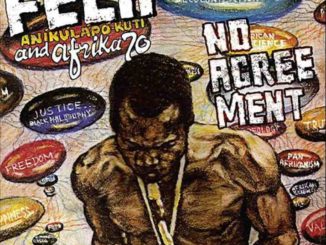
Protest music is a genre that has been successful through the ages, going as far back in time as Bob Marley, John Lennon, Ella Fitzgerald and other artists in their quest for social change. Music is one of the strongest mediums in the world and has helped numerous artists spread their message for peace, equality and freedom. So why, in 2016, is shedding light on unresolved social problems still taboo?
Superbowl 50 was held on February 7th where Coldplay, Bruno Mars and Beyoncé performed an illuminating half-time show. Pop giant Beyoncé premiered a new song, Formation, with an incredible performance.
The video for Formation was released soon after and has reportedly outraged much of the American population. Formation sings a call for unity, an ode of self-love for black people and their own culture.
The video begins with Beyoncé sitting on a drowned police car, set in post-Katrina New Orleans. Memorable scenes include a young black boy dancing in front of a row of officers and a shot of a wall with the words ‘stop shooting us’.
Lyrics such as: “My daddy Alabama, momma Louisiana, you mix that negro with that creole make a Texas bama” sees Beyoncé reclaim the insult and make it her own, and show her colour is something she is inherently proud of.
With Formation, Beyoncé brings to light the major problems in America regarding the police and racism. Hashtags such as #blacklivesmatter have grown as more and more black people are killed.
Many accuse Formation of being anti-police but perhaps it is only through this provocative imagery that society will sit up and listen.
Rapper M.I.A, real name Maya Arulpragasam,has also recently come under fire for controversial material in the song Borders. Forced to flee Sri Lanka at nine years old, M.I.A. uses her personal experience as a refugee to contest the growing hostility many Western countries have over the refugee crisis.
Her video replicates the journey of refugees trying to travel to Europe and its trying conditions, climbing over fences, sailing on crowded boats and trying to pass borders. Lyrics such as “free’dom, ‘I’ dom ‘me’dom, where’s your ‘we’dom” questions the morals of many privileged people.
In a world where food, money and land are in so much abundance, M.I.A asks why we exclude refugees so harshly “borders.. (what’s up with that) .. police shots.. (what’s up with that)”.
Both artists use their personal experience and their roots to question why things are how they are today. So why is this controversial? Should pop music always consist of sugar with no substance?
Songs such as Macklemore’s ‘Same Love’ and Hozier’s ‘Take Me To Church’ both became hugely relevant in the fight for gay rights, so how can songs such as ‘Borders’ and ‘Formation’ be condemned?
Both racism and xenophobia are growing problems and it is through music and discussion that both can be solved.
Rebecca Keane




Leave a Reply